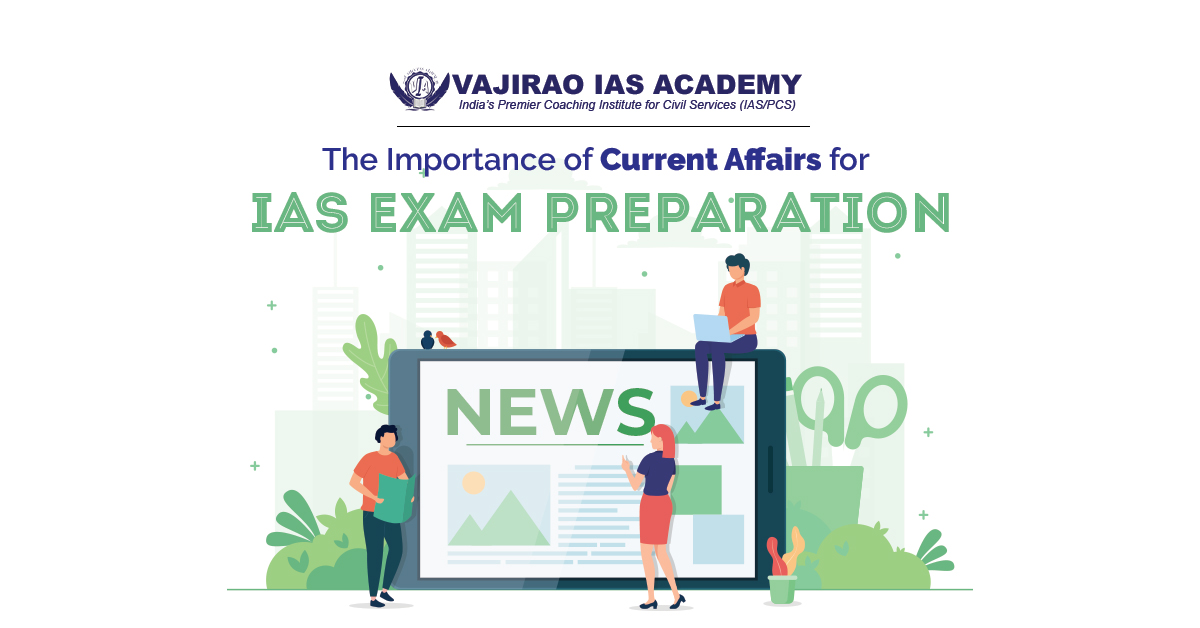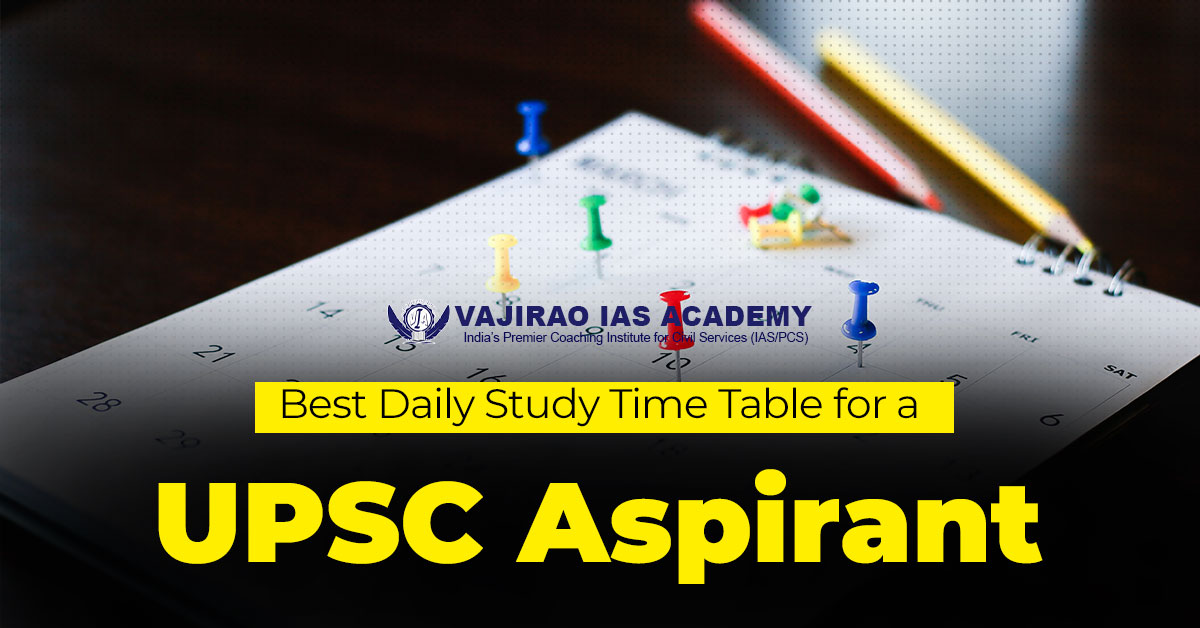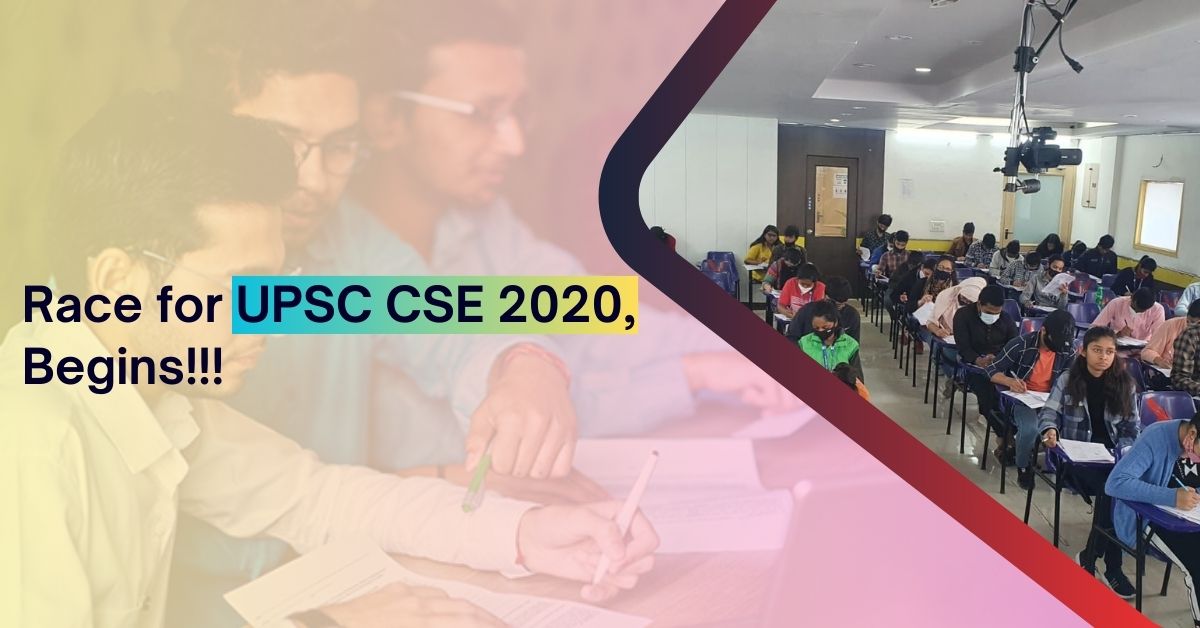Current affairs have become increasingly important for UPSC civil services exam preparation. Vajirao IAS Academy, one of the best IAS coaching institutes in Delhi, strongly recommends students to strengthen their knowledge on current affairs while studying for the IAS exam. It is critical that aspirants stay up to date with the latest news and events to give them an edge during the test.
Studying for the Indian Administrative Service (IAS) exam can be a daunting task, requiring knowledge of a wide variety of subjects. One of the most important topics to focus on during your preparation is current affairs. Understanding the major developments in politics, economics, and international relations will help you score higher on your IAS exams. Being up to date with current events not only increases your knowledge base, but also sharpens your analytical skills.
Current Affairs for IAS Exam
Current affairs play a crucial role in the preparation for IAS exams. It is an integral part of the syllabus and accounts for a significant portion of the questions asked in the exam. Keeping oneself updated with current events is essential as it not only helps in cracking the exam but also helps in becoming a responsible citizen.
The IAS exam tests candidates on their knowledge and understanding of national and international events, political developments, government policies, social issues, and other important aspects affecting society. Therefore, it is essential to regularly read newspapers, watch news channels, follow government websites and social media handles to stay updated on current affairs.
Moreover, being aware of current affairs has become even more critical with recent changes introduced by UPSC regarding including questions related to contemporary issues in all three phases of the examination. Aspirants should not only focus on traditional static subjects but also pay attention to dynamic topics such as science & technology innovations, and environmental concerns among others while preparing for the exam with the best IAS Coaching in Delhi.
Benefits of Knowing Current Affairs:
Staying updated with current affairs is a crucial aspect of IAS exam preparation. Knowing current affairs helps candidates to grasp the pulse of the nation and its people. It also provides them with a better understanding of national and international events, which can be useful in tackling questions related to politics, economics, social issues or any other topic that might come up in the exam.
Moreover, staying abreast with current affairs also helps candidates develop analytical skills and improves their ability to interpret data. It enables them to understand complex issues and their impact on different segments of society. This knowledge further helps in forming opinions and making informed decisions on various topics.
In addition, knowledge of current affairs is not only useful for cracking the IAS exam but it is also helpful for life after becoming an IAS officer. It equips individuals with the necessary tools to stay informed about political issues affecting society as well as economic developments impacting India’s growth trajectory. Hence, keeping oneself updated with daily current affairs should be an integral part of every aspirant’s daily routine.
How to Learn Current Affairs:
Current affairs play a significant role in the preparation of various competitive exams, especially when it comes to the Indian Administrative Service (IAS) exam. Aspirants must be aware of the latest events happening both nationally and globally as this knowledge is essential to understanding the background and context of important issues. To stay up-to-date with current affairs, aspirants can read newspapers or news websites regularly, watch news channels, join the best civil services coaching institutes in Delhi, listen to podcasts, or even join social media groups that discuss current events.
Apart from reading and listening to news sources, aspirants can also make use of study materials designed for IAS exam preparation. These materials cover current affairs from different perspectives and provide valuable insights into important national and international events. Additionally, attending seminars or workshops on current affairs can help aspirants gain a better understanding of complex issues while discussing them with experts in their respective fields.
Keeping oneself informed about current affairs is crucial for aspiring IAS officers. With a plethora of resources available today – from traditional media like newspapers to modern platforms like podcasts – there is no excuse not to stay updated on significant events shaping our world today.
Important Sources for Current Affairs:
One of the most crucial components of IAS exam preparation is staying updated with current affairs. Aspirants need to keep themselves well-informed about the latest happenings in the country and around the world. There are numerous sources available for gathering information on current affairs, some of which are more reliable than others.
One popular source for current affairs is newspapers. Reading newspapers regularly can provide valuable insights into political and economic developments, social issues, and other important events happening worldwide. Another reliable source is news websites that report unbiased news from across various fields like politics, sports, entertainment etc.
Social media platforms such as Twitter and Facebook have also emerged as significant sources of information on current affairs. However, one needs to exercise caution while relying solely on social media channels since many times they may not be entirely accurate or impartial in their reporting. To sum it up, keeping oneself up-to-date with current affairs through reliable sources is vital for cracking the IAS exam.
Tips to Remember Facts and Figures:
- Active Learning: The best way to remember facts and figures is by actively engaging with the material. Reading through a newspaper or textbook passively won’t help you retain information. Instead, try taking notes, highlighting key points, and summarizing what you’ve read in your own words.
- Repetition: Repetition is key when it comes to memorization. Repeating important dates or numbers out loud or writing them down several times will help fix them in your memory.
- Mnemonics: Mnemonic devices can be useful for remembering long lists or complex concepts. For example, “My very eager mother just served us nine pizzas” is a common mnemonic used to remember the order of the planets in our solar system.
- Practice Tests: Testing yourself on what you’ve learned is another effective way to reinforce information and identify areas where you need more review.
- Visualization: Creating visual aids such as charts, graphs, or diagrams can help make information more memorable and easier to understand.
- Group Study: Studying with a group can be helpful for discussing difficult concepts and quizzing each other on facts and figures.
- Prioritization: Focus on the most important facts and figures relevant to your exam preparation rather than trying to memorize everything at once.
- Use Technology: There are many apps available that provide quizzes, flashcards, and other tools specifically designed for studying current affairs.
Common Mistakes to Avoid:
One of the most common mistakes that IAS aspirants make when preparing for their exams is not staying up-to-date with current affairs. Current affairs play a crucial role in the IAS exam, as many questions are based on recent events and developments. Hence, it’s important to regularly read newspapers, watch news channels, and follow reliable online sources to stay informed about national and international news.
Another mistake that some aspirants make is focusing too much on memorizing facts rather than understanding the concepts behind them. While it’s important to have a good memory for factual information, it’s equally essential to understand the underlying principles and theories. This will help you answer questions more accurately and comprehensively.
Finally, many candidates underestimate the importance of practicing previous year question papers. Solving past papers can give you an idea of the type of questions asked in the exam and help you identify your weak areas so that you can work on improving them. By avoiding these common mistakes and following a well-planned preparation strategy focused on current affairs and conceptual understanding, aspirants can increase their chances of success in the IAS exam.
Conclusion:
In conclusion, staying updated with current affairs is crucial for those preparing for the IAS exam. It is not only important to have knowledge about what is happening around us but also to understand the impact it can have on society and governance and these things are clearly manifested in the classes of the best civil services coaching centers in Delhi. The IAS exam tests candidates not only on their subject knowledge but also their awareness of current events and their ability to analyze them critically.
Moreover, keeping up with current affairs can help in writing better answers in the IAS mains exam. Questions related to current events are often asked in the General Studies paper, and having a good understanding of these topics can give an edge over other candidates. It also helps during the interview stage as questions related to current affairs are commonly asked.
In short, making reading newspapers and watching news channels a daily habit should be an integral part of any IAS aspirant’s preparation strategy. Staying informed about national and international events not only helps in cracking the IAS exam but also prepares one for a career that involves decision-making at various levels of governance.




